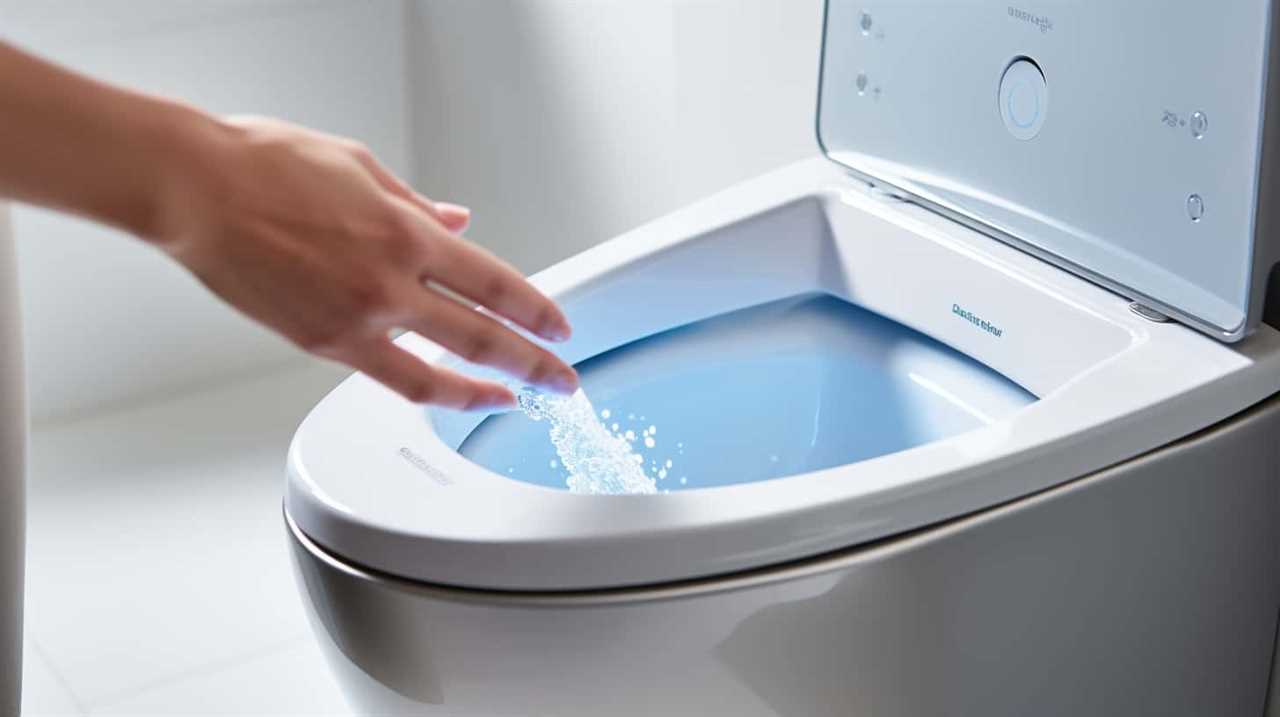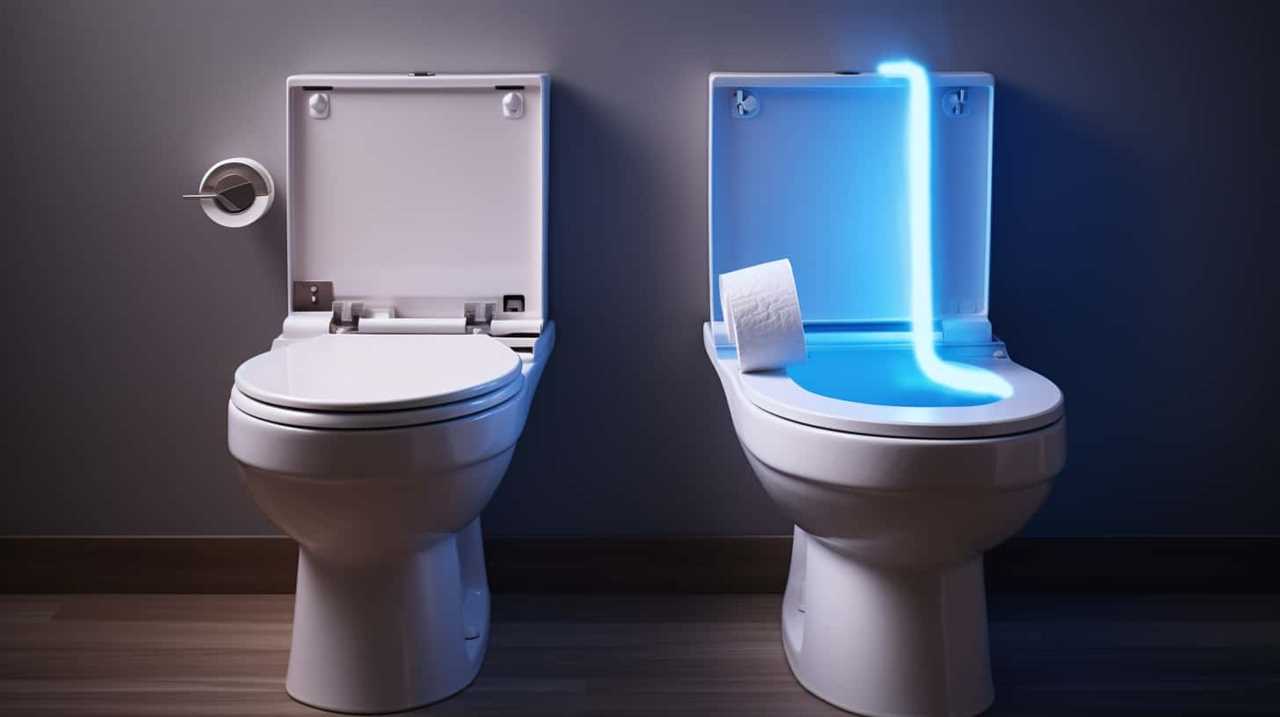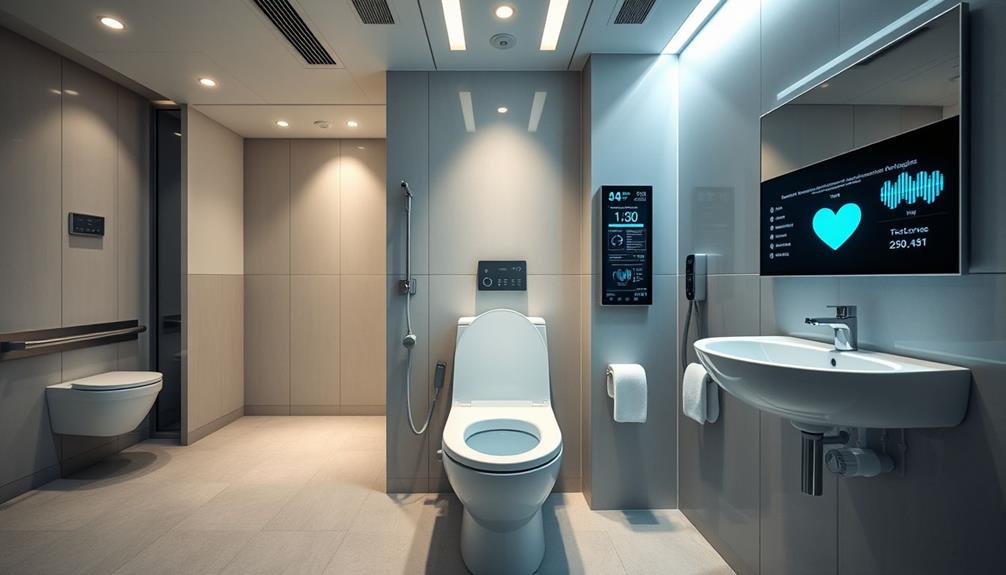Ladies and gentlemen, let’s dive into the age-old debate: is it wiser to opt for wipes instead of traditional toilet paper?
In this article, we’ll dissect the environmental impact, hygiene considerations, cost comparison, convenience, and health and safety concerns associated with both options.
Our goal is to provide you with a concise, informative, and unbiased analysis, allowing you to make an educated decision.
So, join us on this journey as we explore the pros and cons of wipes versus toilet paper.

Key Takeaways
- Wipes can cause water pollution, clog pipes, and contribute to environmental pollution.
- Wipes provide thorough cleaning and convenience, but some may contain harsh chemicals or irritants.
- Wipes have a higher price tag compared to toilet paper and need to be purchased regularly.
- Bidets can be a more cost-effective and environmentally friendly alternative to wipes and toilet paper.
Environmental Impact of Wipes Vs. Toilet Paper
The environmental impact of wipes compared to toilet paper is a topic that concerns us all. When it comes to water pollution, wipes can be problematic. Unlike toilet paper, many wipes aren’t designed to dissolve in water, which means they can clog pipes and cause sewage backups.
Additionally, wipes often contain chemicals and synthetic materials that can leach into the water supply, further contributing to pollution.
In terms of landfill waste, wipes also pose a problem. Because they aren’t biodegradable, they can take years to break down in landfills, adding to the already significant amount of waste generated by society.
Therefore, it’s important to consider the environmental impact of wipes when making choices about personal hygiene products.

Hygiene Considerations When Using Wipes
When using wipes, we need to consider hygiene factors. Personal hygiene is a crucial aspect of our daily routines, and using toilet wipes can have both advantages and disadvantages in maintaining cleanliness. One of the main benefits of using wipes is that they provide thorough cleaning and can effectively remove bacteria and residue from the skin. They’re also more convenient and portable compared to toilet paper, making them a popular choice for individuals on-the-go.
However, it’s important to note that not all wipes are created equal. Some wipes may contain harsh chemicals or irritants that can cause skin irritation or allergic reactions. It’s essential to choose wipes that are specifically designed for personal hygiene and are gentle on the skin.
Additionally, proper disposal of wipes is crucial to prevent clogging in sewer systems and environmental pollution.
Cost Comparison: Wipes Vs. Toilet Paper
In terms of cost, we find that using wipes instead of toilet paper can lead to higher expenses over time. While wipes may offer a more thorough cleaning experience compared to toilet paper, they come with a higher price tag. A long-term cost analysis reveals that wipes need to be purchased regularly, increasing the overall expenditure. On the other hand, toilet paper is generally more affordable and readily available. Additionally, alternatives like bidets can provide a cost-effective solution in the long run. By considering the initial investment and ongoing maintenance costs, bidets can be a more economical choice compared to wipes.
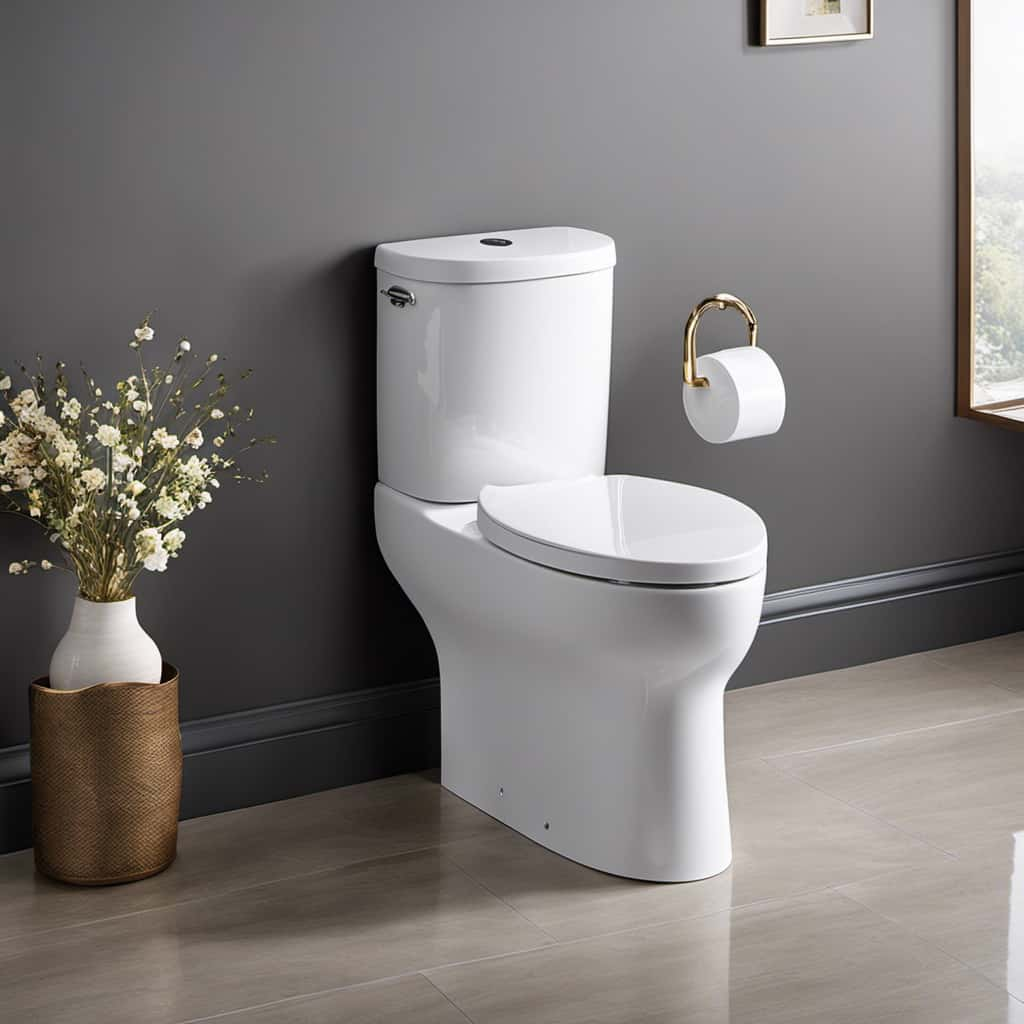
Transitioning now to the next topic, let’s explore the convenience and ease of use when comparing wipes and toilet paper.
Convenience and Ease of Use: Wipes Vs. Toilet Paper
We frequently find that using wipes instead of toilet paper offers a more convenient and user-friendly experience. Here are some reasons why:
- Flushability: Unlike toilet paper, many wipes are designed to be flushed down the toilet. This eliminates the need for additional waste bins or the hassle of disposing of used toilet paper.
- Skin irritation: Wipes are often made with gentle and moisturizing ingredients that can be soothing to sensitive skin. This can be especially beneficial for individuals who experience skin irritation or discomfort when using traditional toilet paper.
- Thorough cleaning: Wipes provide a more thorough cleaning compared to toilet paper alone. The moist and textured surface of wipes can effectively remove residue and ensure a cleaner feeling after each use.
It’s important to note that not all wipes are flushable, so it’s crucial to check the packaging and follow manufacturer instructions to avoid plumbing issues. Additionally, some individuals may experience skin irritation or allergic reactions to certain ingredients in wipes, so it’s important to choose products that are suitable for your skin type.
Health and Safety Concerns With Wipes
Now, let’s delve into the potential health and safety concerns associated with using wipes instead of toilet paper. While wipes may offer convenience, they can also pose certain risks to our health and well-being. One concern is the use of flushable wipes, which are often marketed as safe to flush. However, these wipes can cause clogs and blockages in plumbing systems, leading to costly repairs. Additionally, some people may experience skin irritation when using wipes. The chemicals and fragrances present in certain wipes can irritate sensitive skin, causing redness, itching, and discomfort. It is important to be mindful of these potential health and safety concerns when considering the use of wipes as an alternative to toilet paper.

| Health and Safety Concerns With Wipes |
|---|
| Flushable wipes can cause clogs and blockages in plumbing systems. |
| Chemicals and fragrances in wipes can irritate sensitive skin. |
Frequently Asked Questions
Are Wipes Safe to Flush Down the Toilet?
Flushing wipes can cause environmental issues. To avoid problems, it’s better to dispose of them in the trash. Alternatives to flushing wipes include using toilet paper or biodegradable wipes that can be safely flushed.
Can Wipes Cause Plumbing Issues or Blockages?
Using wipes instead of toilet paper can cause plumbing issues and blockages. It’s important to consider the impact on the environment. There are alternatives to wipes that are more sustainable and don’t pose the same risks.
Do Wipes Contain Any Harmful Chemicals?
Yes, wipes can contain harmful chemicals. In addition, they contribute to environmental pollution and can have long-term health effects. It’s important to consider these factors when deciding between wipes and toilet paper.
Are Wipes Suitable for Sensitive Skin?
Wipes vs. toilet paper: Which is more eco-friendly? The impact of wipes on the environment and wastewater treatment systems. We’ll discuss if wipes are suitable for sensitive skin.
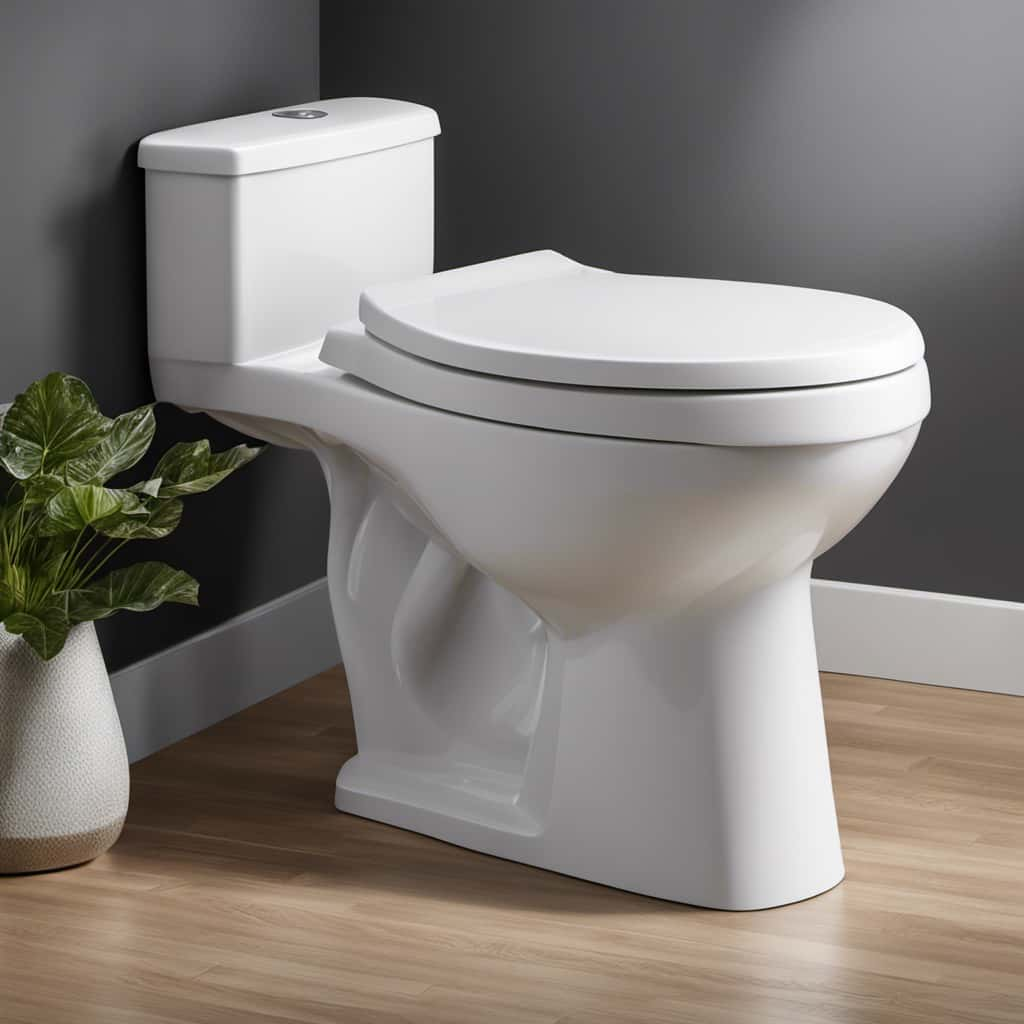
Can Wipes Be Used on Infants and Young Children?
Using wipes for diaper changes, is it necessary or too harsh for delicate baby skin? Wipes may be convenient and efficient for parents, but it’s important to consider the sensitivity of a baby’s skin before making a decision.
Conclusion
In conclusion, when considering the environmental impact, hygiene considerations, cost comparison, convenience, and health and safety concerns, it’s clear that using wipes instead of toilet paper isn’t necessarily better.
While wipes may offer convenience and ease of use, they pose significant environmental challenges and potential health risks.
Ultimately, the choice between wipes and toilet paper should be made based on personal preferences and priorities, keeping in mind the overall impact on the environment and individual well-being.

